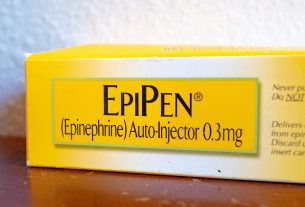India has responded to an alarming public health issue in West Africa by banning the production and export of two potent opioids—tapentadol and carisoprodol—following an investigation by the BBC. The two drugs, which have fueled an addiction crisis in countries like Ghana, Nigeria, and Côte d’Ivoire, have now been deemed illegal for manufacturing and export.
According to a letter from India’s Drugs Controller General, Dr. Rajeev Singh Raghuvanshi, permission to produce and distribute these drugs was revoked after reviewing evidence of their abuse potential and harmful effects. This move came after the BBC uncovered evidence that Aveo Pharmaceuticals had been illicitly sending dangerous mixtures of these opioids to West African markets.
In an undercover investigation, the BBC revealed that Aveo’s factory in Mumbai had been producing these opioids and distributing them to various West African nations. Despite their known risks, these drugs are popular on the black market due to their low cost and easy availability.
Tapentadol, a strong opioid, and carisoprodol, a muscle relaxant, are both highly addictive. While carisoprodol is banned in Europe and only permitted for short-term use in the US, combining them can lead to severe side effects, including breathing problems, seizures, and potentially fatal overdoses. Despite these dangers, the combination is illicitly sold in places like Nigeria, where approximately 4 million people are estimated to abuse opioids.
The illicit trade of these opioids was exposed through undercover footage obtained by the BBC, where Aveo’s director, Vinod Sharma, openly acknowledged the harmful effects of the drugs while discussing their business potential in West Africa. In the footage, Sharma casually discussed the use of the drugs to induce relaxation or euphoria, reinforcing their street value despite the severe risks involved.
In response to the investigation, Indian authorities raided Aveo’s facility, seizing its entire stock of illegal opioids and halting further production. The Food and Drug Administration (FDA) also indicated that legal actions against the company are underway, aiming to prevent any future illicit distribution. The FDA further emphasized its commitment to ensuring the integrity of India’s pharmaceutical exports.
This ban marks a significant step in combating the opioid crisis in West Africa, where these substances have caused immense harm to communities, exacerbating an already troubling public health situation.
Sources:
- BBC News Investigation
- India’s Drugs Controller General, Dr. Rajeev Singh Raghuvanshi
- India’s Food and Drug Administration



